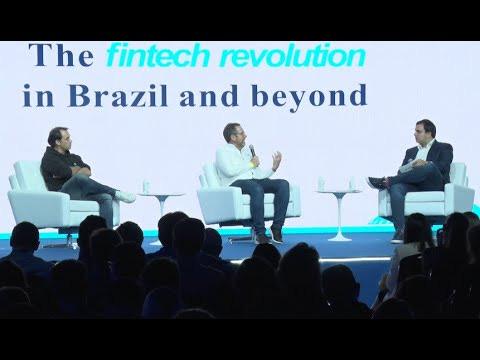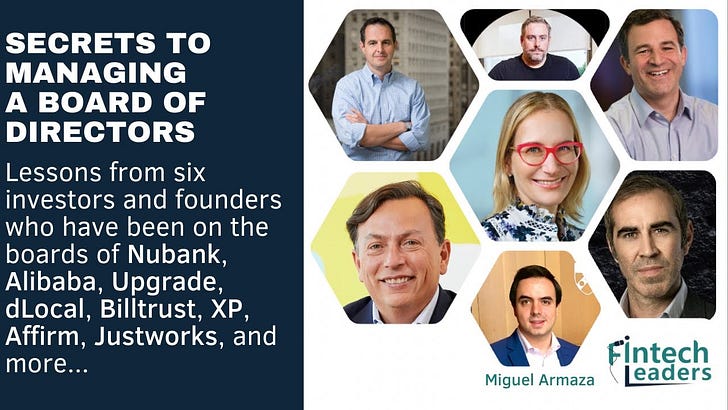This article is part of Fintech Leaders, a newsletter with 51,000+ dreamers, entrepreneurs, investors, and students of financial services. I invite you to share and sign up! And, if you enjoy this conversation, please consider leaving a review on Apple Podcasts, Spotify, or wherever you get your shows so more people can learn about Fintech Leaders.
In this episode, I sit down with the legendary Bruno Balduccini, Partner at Pinheiro Neto, the leading law firm in Brazil where he spearheads the Financial Institutions group and advises domestic and international clients.
If you’ve ever worked in the Brazilian financial and fintech ecosystem, you’ve probably crossed paths with Bruno, since he has worked on the majority of major transactions involving financial incumbents, startups and payment institutions. He’s also actively participated in the drafting and improvement of the rules for the Brazilian financial industry.
In this episode, we discuss:
A brief history of Brazilian fintech and why Brazil’s Central Bank has been an extraordinary partner to fintech startups
Over the last decade, the Central Bank of Brazil has embraced fintech innovation and has opened its doors to fintech startups. Sparked by a push from Congress and society to address high-interest rates charged by banks, the Central Bank realized that some of the main hurdles driving high rates were lack of technology and access to information. With credit card rates as high as 300%, the Central Bank began aggressively testing new regulations and taking calculated risks to increase competition, even if it meant taking on some new fraud risk.
This approach has led to a more collaborative and supportive regulatory environment between the Central Bank and nascent fintech companies. In addition, the Brazilian Central Bank acts as a single regulator for payments, credits, and banking, which has made it easier to streamline key initiatives like PIX and Open Banking across the entire financial sector.
Why the fintech opportunity in Brazil is so large and special, but why it’s also not a market for beginners
“There is a saying in Portuguese that says ‘O Brasil não é para iniciantes’, which translates into Brazil is not for beginners. In other words, although there is a huge opportunity. It is a complex country. Complex in the sense that it's a poor country, but the banking sector is extremely sophisticated.”
Interesting trends entrepreneurs and investors should be paying attention to, and what Central Banks around the world can learn from Brazil
The Brazilian fintech revolution is just getting started, and Bruno suggests entrepreneurs and investors should pay attention to three key trends that have the potential to completely transform the payments and banking industry.
Guaranteed PIX. This has the potential to replace credit cards and reduce transaction costs. It will allow customers to buy products in installments on PIX rails, bypassing existing legacy payments systems. Each transaction will be guaranteed by the issuer of PIX, which means the credit risk will fall on the issuer (bank or payment institution).
Full implementation of Open Finance. This will allow financial institutions to access organized client information to help improve credit decisions and foster competition.
New Foreign Exchange Law. The new law will give way for new payment institutions and fintech companies to operate in the foreign exchange market, creating more competition and new products with better user experience.
Together, these trends have the potential to disrupt and reshape the Brazilian payments and banking industry.
Working with multibillion-dollar companies like Nubank, Stone & PagSeguro from day one, common traits of successful entrepreneurs… and a lot more!
“It makes a difference knowing when to take the risk. Because risk, you're always gonna take it, but knowing when to take it and what kind of risk to take… is one of the reasons [entrepreneurs succeed]. The other one is that you have to be bold.”
Want more podcast episodes? Join me and follow Fintech Leaders today on Apple, Spotify, or your favorite podcast app for weekly conversations with today’s global leaders that will dominate the 21st century in fintech, business, and beyond.



























Share this post